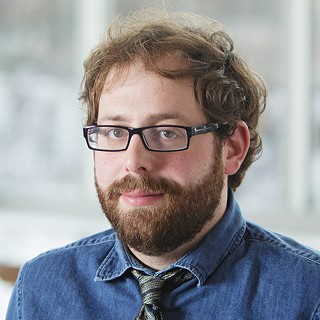American politics has become increasingly broken by partisanship. There are lots of people to blame for this destruction of the public dialogue. Certainly some have contributed more than others to the creation of gridlock and the failure of politics to meet our present challenges. But I would argue that far more than replacing any particular player, it is the rules of the game that are in need of reform.
Money is one problem, but largely an incurable one. While we can reduce the impact money has on our politics — and we should — we can come nowhere close to eliminating its impacts, short of measures so draconian they would do more harm than good.
Fortunately, there is a more direct way to attack partisanship. What we must do is diminish the role and power of political parties.
The understanding of political parties as a damaging influence on our public affairs is a quintessential American notion. President George Washington warned us of their potentially dangerous impact in his Farewell Address, declaring that while political parties "may now and then answer popular ends, they are likely in the course of time and things, to become potent engines, by which cunning, ambitious, and unprincipled men will be enabled to subvert the power of the people and to usurp for themselves the reins of government, destroying afterwards the very engines which have lifted them to unjust dominion."
American progressives at the end of the 19th and early 20th centuries similarly fought party bosses, often successfully. They won the right for the popular election of U.S. Senators, shifting accountability from the agenda of partisan state legislatures to the broader interests of the people.
In 1934, the voters of Nebraska took a sledgehammer to partisanship by eliminating their House of Representatives, granting its powers to the Senate, and banning political affiliation from being listed on the ballot in state legislative races. To this day, the Nebraska Legislature continues to function as a unicameral, nonpartisan body, with both Republicans and Democrats simultaneously holding committee chairmanships and serving together in leadership positions.
In more recent history, in Washington state and in California, we've created open primaries, where people vote for whomever they choose regardless of political party and the top two vote-getters advance to the general election.
In many states, like Idaho, redistricting is now done by bipartisan committees, equally divided between Democrats and Republicans. In this year's State of the Union, President Obama called for this system to be used across the country.
We live in a particularly ripe time to continue the long-standing American tradition of shifting power from political parties to the interests of all citizens. According to the Pew Research Center, more than half of all millennials identify as independent, not associating themselves with either political party.
Over the next decades, as millennials become an increasing percentage of the voters, we have a chance to follow in the footsteps of George Washington, progressives like Teddy Roosevelt, and the state of Nebraska to continue empowering everyday citizens to reduce the power of partisanship and ensure that the problems we face together are solved by all of us working together. ♦
John T. Reuter, a former Sandpoint City Councilman, has been active in protecting the environment, expanding LGBT rights and Idaho's Republican Party politics.






















